Department Profile
Department of Business Administration emerged in the Academic Year 1993-1994 to achieve the mission and vision of the Institution to uplift the rural women in imparting high quality education. The objective of this programme is to acquire leadership skills and also enlighten the entrepreneurial skill to keep the students abreast with the latest trends in management education. Our course and curriculum was designed to prepare the students to face the challenges of the managerial profession in their career as successful business leaders.
The department has signed MOU’s with Six industries to undergo inplant training, project work and periodical industrial visit would be of major benefit to the students’ community to enhance their practical exposure. Good rapport with industrialists, various colleges, clubs and associations our Department has been organizing regularly guest lectures, seminars, workshops and eco-consciousness activities in developing an integrated view towards management. Emphasize on Individuality and uniqueness by make the students to participate in Intra and Inter Collegiate Programmes. Infusing Social Responsibility through regularly organizing self-employment programme to the economically backward women. Department Magazine “Synergy” is annually released since 2002. The department has well qualified and experienced faculty, who focus on equipping the students to build their managerial skills with a view to mould them as management leaders to compete with the best in the field.
Vision:
To create new dimensions of management skills, both conceptual and practical, leading to improved decision making abilities and managerial competence.
Mission:
- To develop the analytical and problem solving skills of the business students.
- To provide high quality, value based, career oriented education for students.
- To facilitate excellence in effective leadership to develop the overall personality of the students.
- To forecast the future trends of business and spell out the strategies needed for facing the future.
| Name of the Programme | BBA |
| Duration | 3 Years |
| Intake | 60 |
| Eligibility | Candidates seeking admission to the BBA Programme must have passed the Higher Secondary Examination (Any group I / II / III / IV) of the Government of Tamilnadu or any other examination accepted by the syndicate of Madurai Kamaraj University as its equivalent. |
| Preference will be given to those who have taken Commerce as a subject in the qualifying examinations. | |
PLOs -PSOs- PEOs
SYLLABUS 2023
Programme Educational Objectives (PEOs)
PEO1: develop wide spectrum of contribution to business, trade and industry in the national and global context and professional competence to do higher studies.
PEO2: able to create innovative solutions to the real time business problems and apply professional ethics in the social and legal aspects of business through projects and internship training.
PEO3: competent in managerial skills in the context of socio technological changes to manage their business successfully with creative, innovative and entrepreneurial potentials.
Programme Learning Outcomes (PLOs)
PLO1: Disciplinary knowledge
Apply the knowledge of Arts, Science and Humanities to address fundamental and complex questions appropriate to their programmes.
PLO2: Critical thinking, Problem solving and Analytical reasoning
Make use of appropriate knowledge and skills to identify, formulate, analyze and solve problems in order to reach substantiated conclusions.
PLO3: Research related skills and scientific reasoning
Critically analyze research processes, products and practices with a view of strategic use of data in their field.
PLO4: Communication skills and Digital literacy
Demonstrate skills in oral and written communication and make use of ICT in various learning ambience.
PLO5: Team work and Leadership quality
Interact productively with people from diverse backgrounds as both leaders/mentors and team members with integrity and professionalism.
PLO6: Multicultural competence with Moral and ethical awareness
Defend the society against gender and environmental issues with moral and ethical awareness.
PLO7: Self-directed and Life-long learning
Formulate their own educational needs in a changing world in ways sufficient to maintain their competence and to allow them to contribute to the advancement of knowledge.
Programme Specific Outcomes (PSOs)
By the completion of the B.B.A Programme, the learners will be able to
PSO1: understand the major disciplines in the field of management to resolve real-time business problems and take part in decision making by using appropriate business techniques to manage business challenges.
PSO2: make use of leadership skill with ethical values for formulating business plan to become a successful entrepreneur and create self-confidence for better employability.
PSO3: adapt the technological advancement to analyze the various aspects of business research in the emerging areas of management.
SYLLABUS 2020
PO: Programme Outcomes are narrower statements that describe what students are expected to know and be able to do upon the graduation. These relate to the skills, knowledge and behaviour that students acquire in their study through the programmes.
PO1: Disciplinary knowledge
Apply the knowledge of Arts, Science and Humanities to address fundamental and complex questions appropriate to their programmes.
PO2: Critical thinking, Problem solving and Analytical reasoning
Make use of appropriate knowledge and skills to identify, formulate, analyze and solve problems in order to reach substantiated conclusions.
PO3: Research related skills and scientific reasoning
Critically analyze research processes, products and practices with a view of strategic use of data in their field.
PO4: Communication skills and Digital literacy
Demonstrate skills in oral and written communication and make use of ICT in various learning ambience.
PO5: Team work and Leadership quality
Interact productively with people from diverse backgrounds as both leaders/mentors and team members with integrity and professionalism.
PO6: Multicultural competence with Moral and ethical awareness
Defend the society against gender and environmental issues with moral and ethical awareness.
PO7: Self-directed and Life-long learning
Formulate their own educational needs in a changing world in ways sufficient to maintain their competence and to allow them to contribute to the advancement of knowledge.
Programme Specific Outcomes (PSO):
Programme Specific Outcomes denote what the students should be able to do at the time of graduation. They are programme specific. It is mandatory that each PO should be mapped to the respective PSO specified in the programme in order.
By the completion of the B.B.A programme, the learners will be able to
PSO1: acquire business acumen that helps them to understand the major disciplines in the field of management.
PSO2: identify, evaluate and resolve real-time business problems and take part in decision making by using appropriate techniques to manage business challenges.
PSO3: analyze the various aspects of business research in the area of marketing, human resource and finance.
PSO4: listen, read and express ideas with clarity to create self confidence for better Employability.
PSO5: make use of leadership skills in team environment to apply technical knowledge in diverse areas of management and formulate various logical components of a business plan to become a successful entrepreneur.
PSO6: excel as responsible socially committed individuals having high business ethical values.
PSO7: adapt to the technological advancement in the emerging areas of business management
Programme Educational Objectives (PEOs):
PEOs are broad statements that describe the career and professional achievements that the programme is preparing the graduates to achieve within the first few years after graduation. PEOs should be consistent with the mission of the Institution. PEO’s can be measured by a PO-PEO matrix. The PEO’s should evolve through constant feedback from alumnae, students, industry, management etc,. It is mandatory that each PEO should be mapped to atleast one of the POs.
The Graduates will
PEO1: develop wide spectrum of contribution to business, trade and industry in the national and global context and professional competence to do higher studies.
PEO2: able to create innovative solutions to the real time business problems and apply professional ethics in the social and legal aspects of business through projects and internship training.
PEO3: competent in managerial skills in the context of socio technological changes to manage their business successfully with creative, innovative and entrepreneurial potentials.
Faculty Details
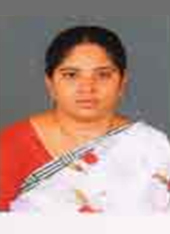
Dr. M.S.Yasmeen Beevi
M.Com.,M.Phil.,M.B.A.,Ph.D., SLET.,
Assistant Professor & Head
E-Mail yasmeenbeevi-bba@sfrcollege.edu.in Area of Specialization Commerce and Marketing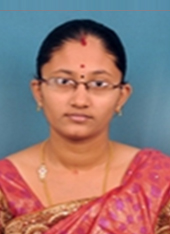
Dr.A.Muthumari
M.B.A.,M.Phil.,Ph.D.
Assistant Professor
E-Mail muthumari-bba@sfrcollege.edu.in Area of Specialization Finance and HR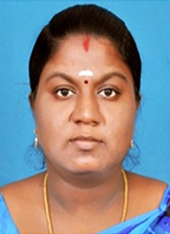
Mrs.P. Karthika @ Nanthini
M.HRM.,M.B.A.,PGDPM & IR.,
Assistant Professor
E-Mail karthika-bba@sfrcollege.edu.in Area of Specialization Human Resource Management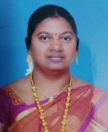
Mrs.M.Sindhuja Devi
M.Com., M.Phil .,M.B.A.,
Assistant Professor
E-Mail sindhujadevi-bba@sfrcollege.edu.in Area of Specialization HR and MarketingRemarkable Activities
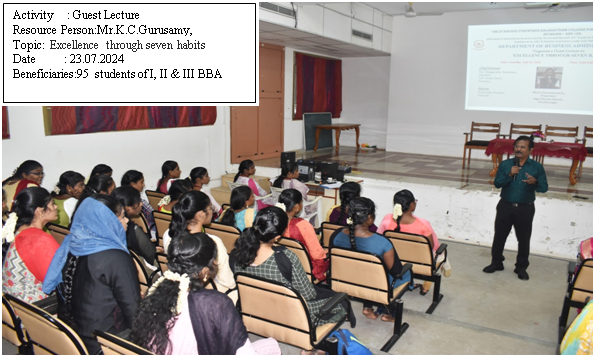
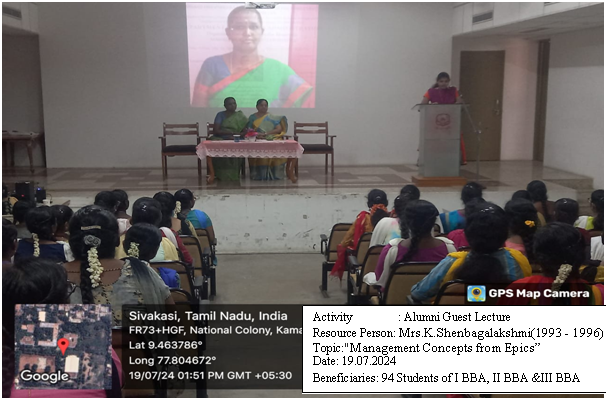
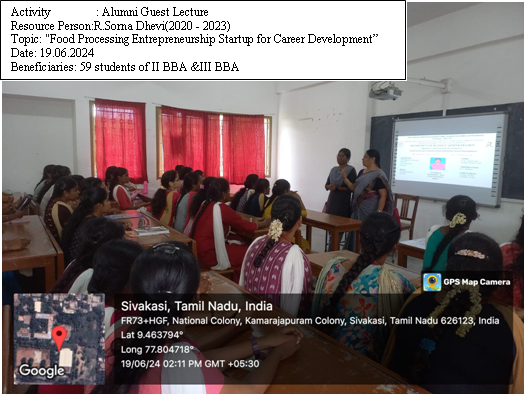
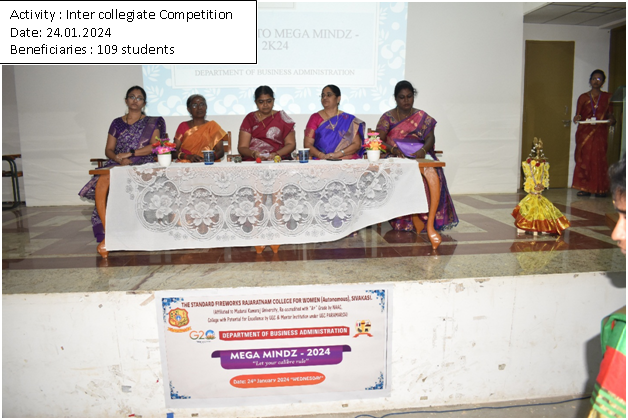
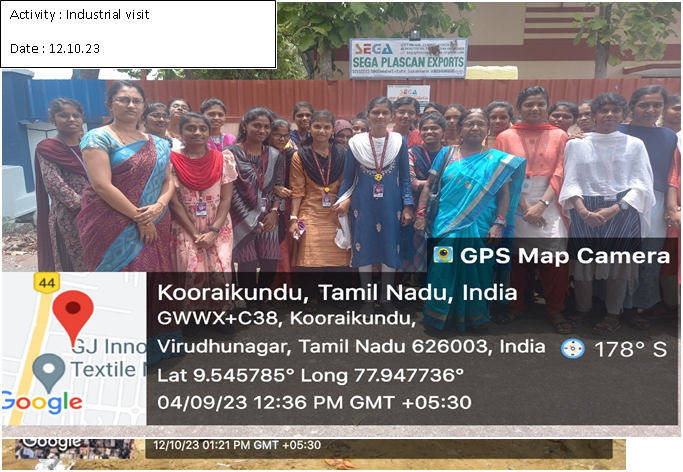
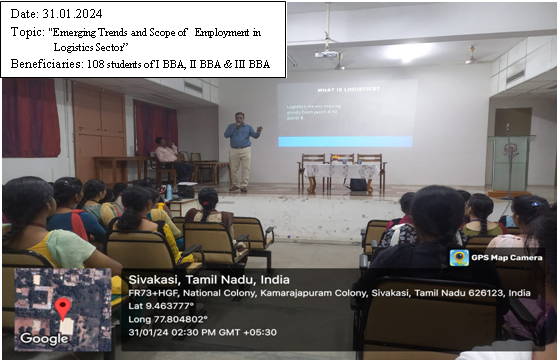
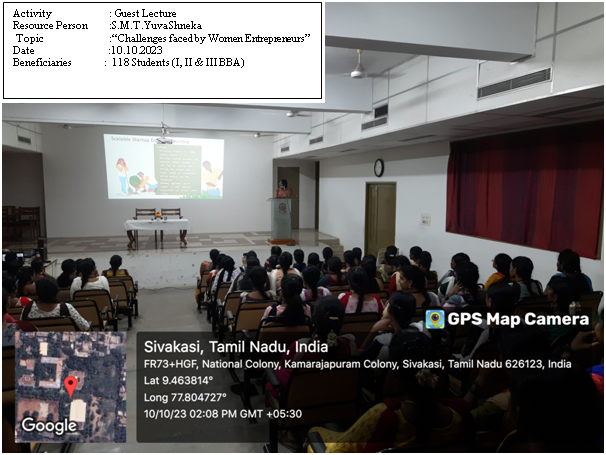
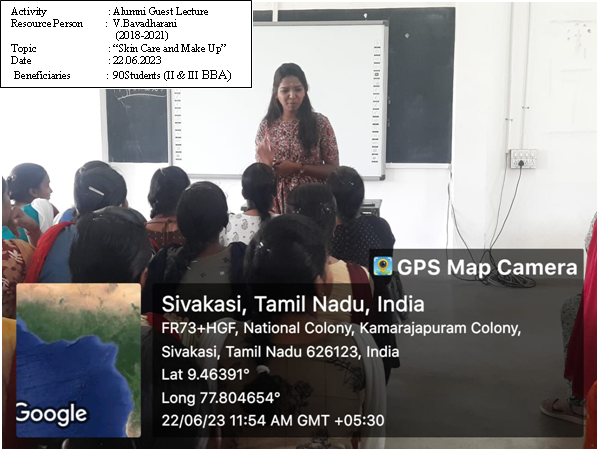
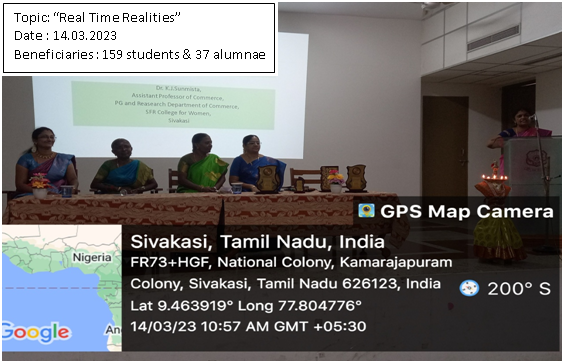
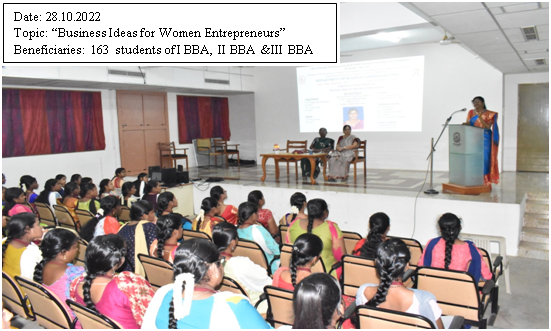
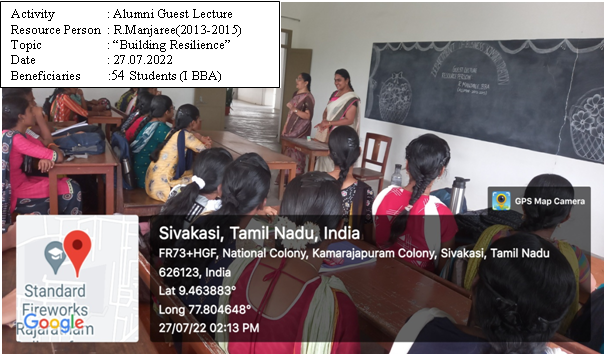
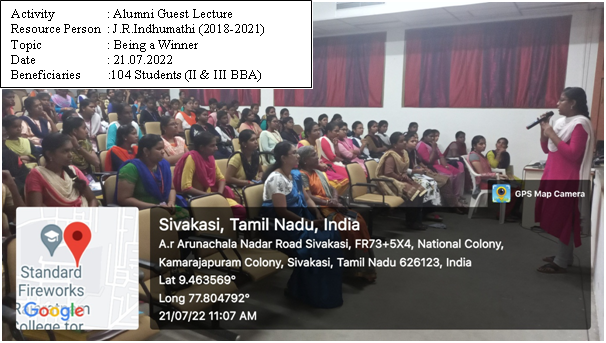
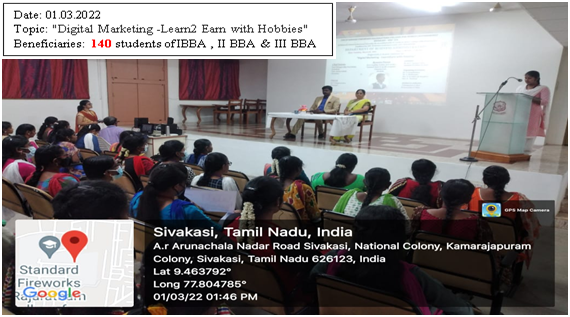
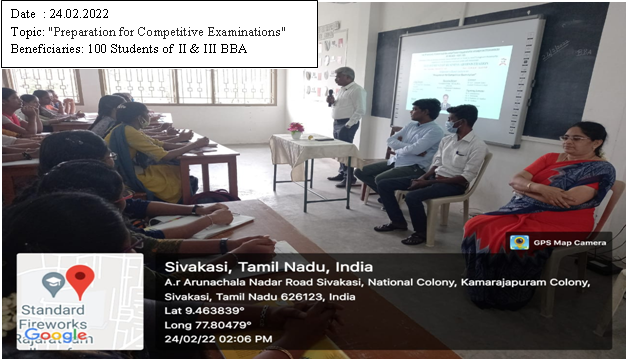
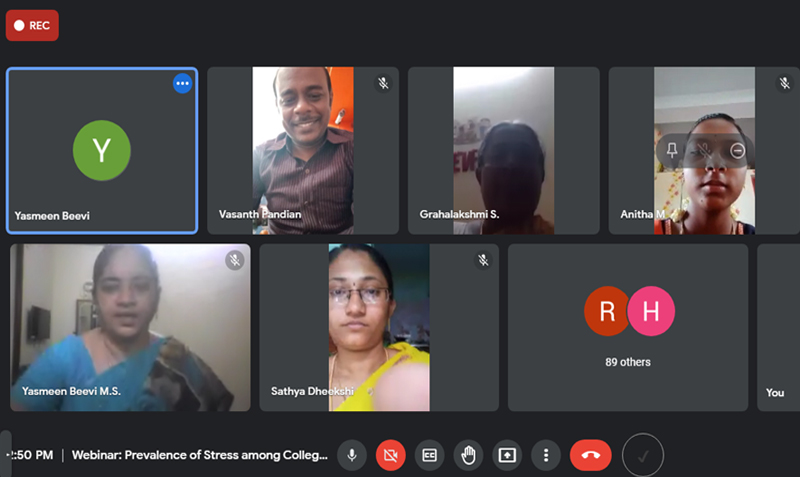
Resource Person: Dr.P.Vasanth, B.H.M.S., M.D. (acu), Vasanth Homoeo Clinic, Madurai
Topic: “Prevalence of Stress among College Students during Covid-19 & Coping with Related Issues”.
Date: 26.07.2021
Participants: 81 students of II & III BBA
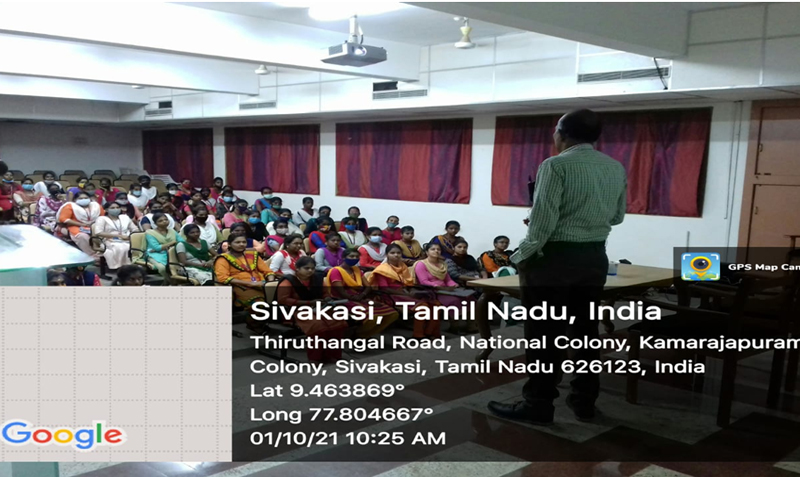
Resource Person: Dr.P.K.BalaMurugan, Vice Principal & Head of the Department of Business Administration, Sri Kaliswari College, Sivakasi
Topic: "Women Entrepreneur – Strategy for Success”.
Date: 01.10.2021
Participants: 101 - II & III BBA Students
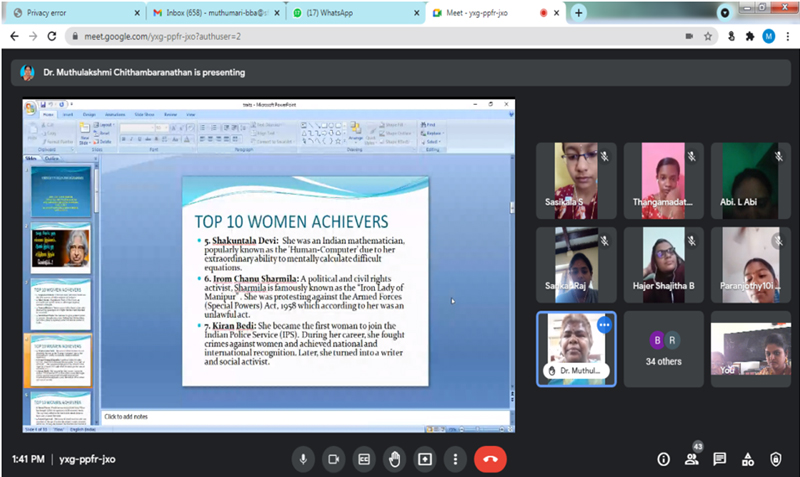
Alumnae Guest Lecture
Resource Person: Dr.C.Muthulakshmi, M.Com., M.Phil., MBA, Ph.D., (1999-2002),Assistant Professor & Head, Department of B.Com., Business Analytics, G.Venkataswamy Naidu College (Autonomous), Kovilpatti
Topic: “Graduate Attributes”
Date: 09.09.2021
Participants: I BBA Students
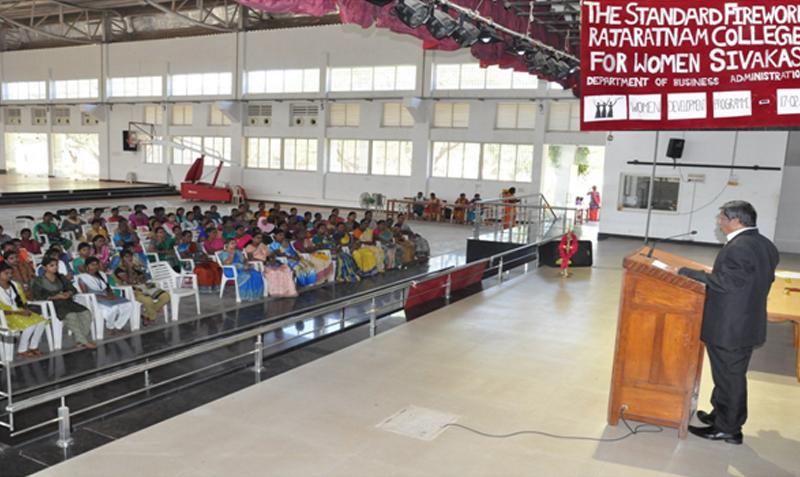
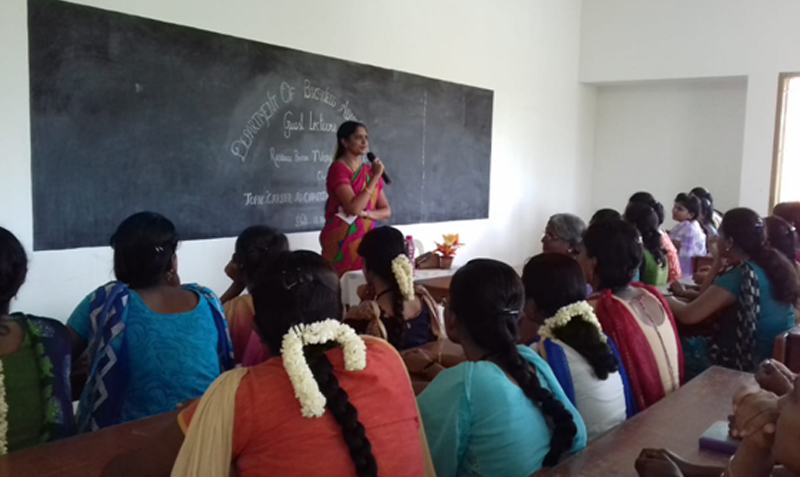
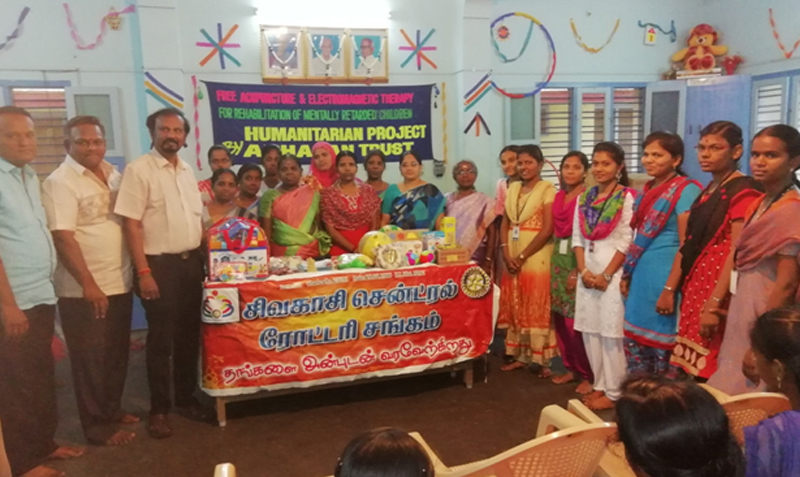
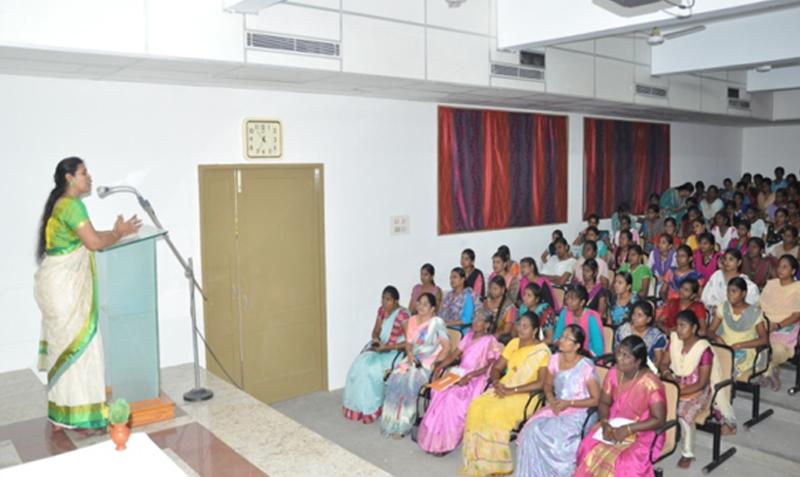
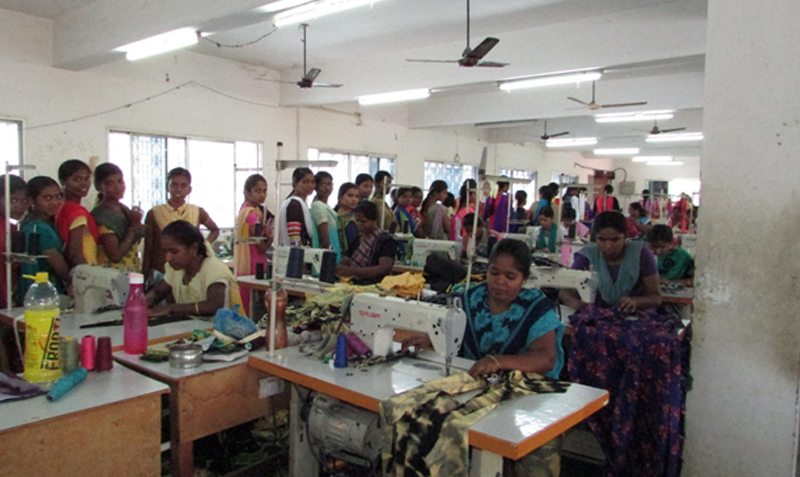
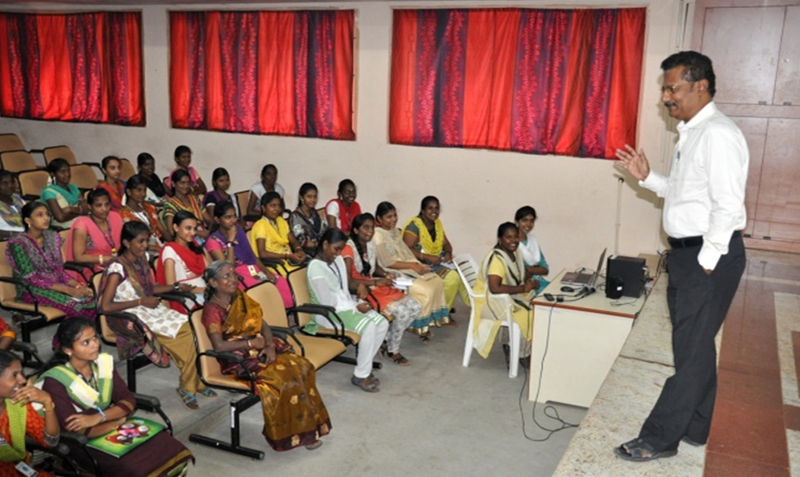
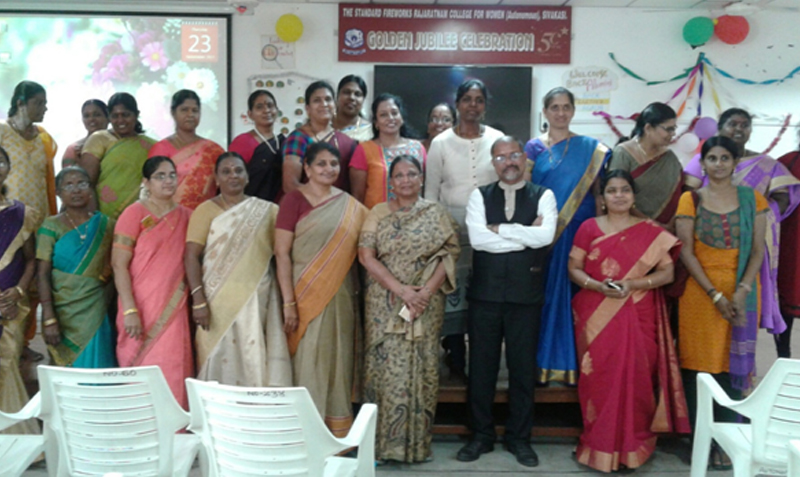
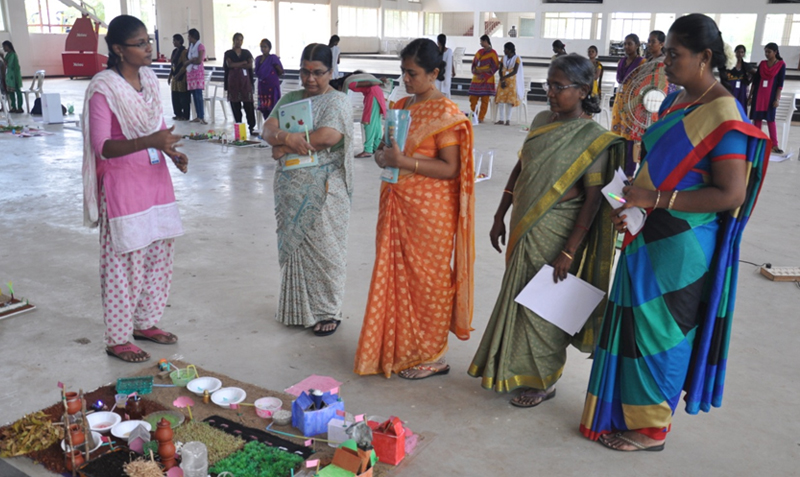
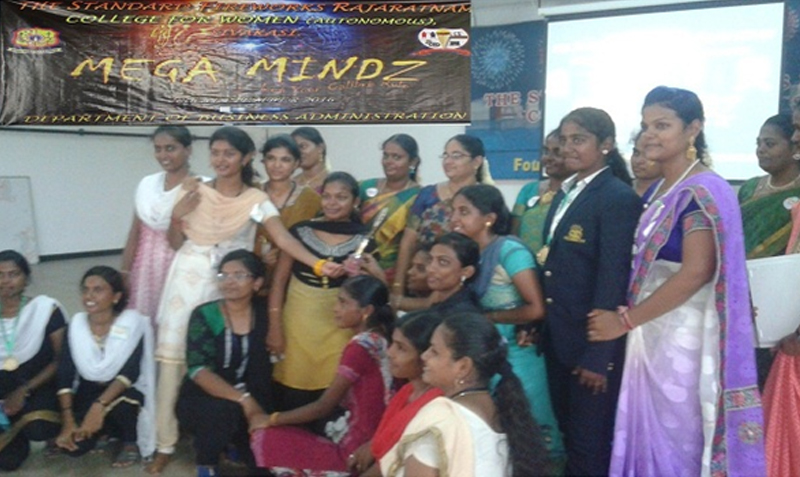
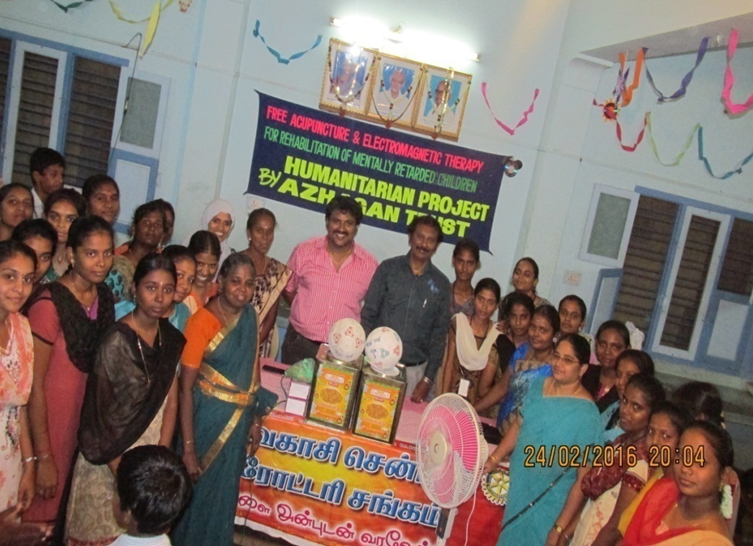
Staff Achievements
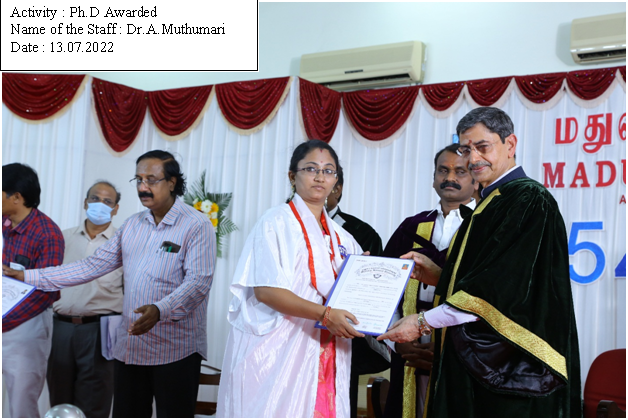
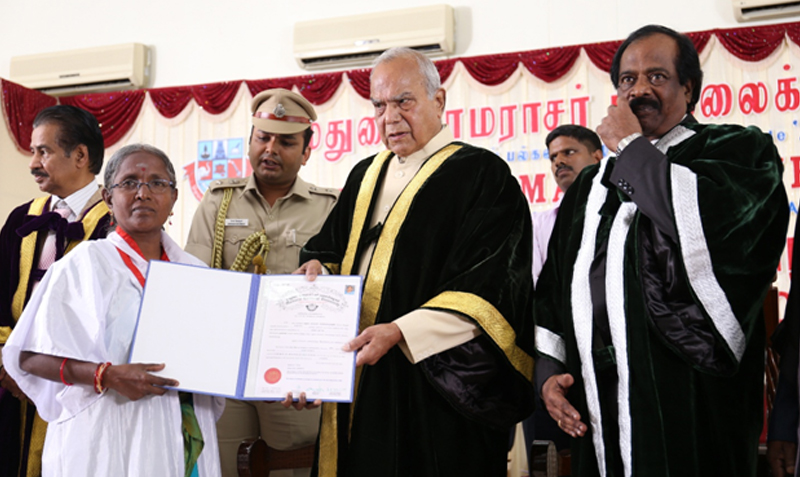
Activity: Awarded Ph.D
Date :11.02.2019
Name of the Staff: Dr. S. Grahalakshmi
Student Achievements
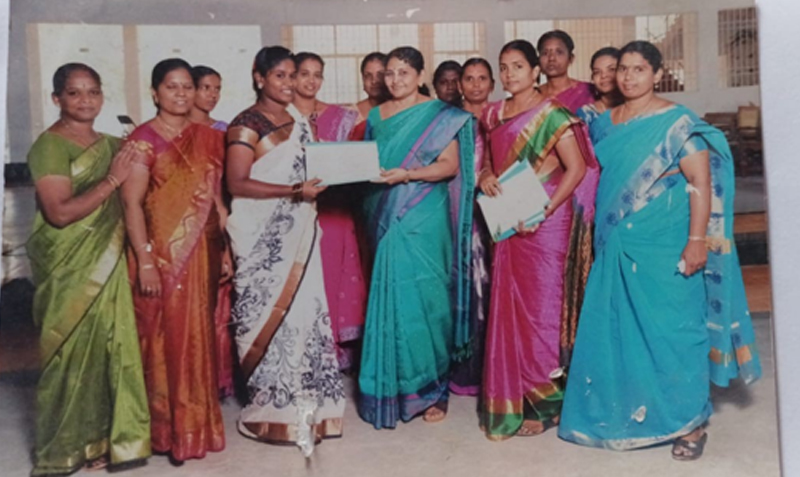
Activity : Union Secretary
Year : 2015-2016
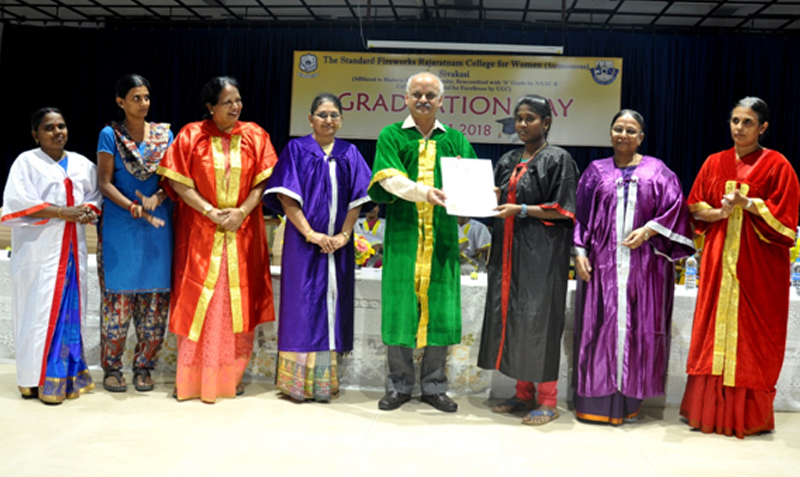
Activity :Best Outgoing Student
Year :2015-2016
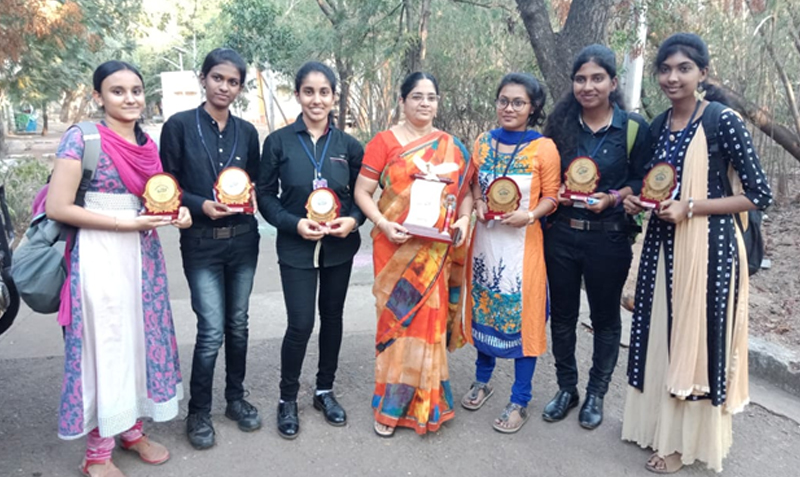
Activity : Intercollegiate Competition
Organiser : Department of Commerce
Venue : Lady Doak College, Madurai.
Participants : 22Students
Date :29.01.2020
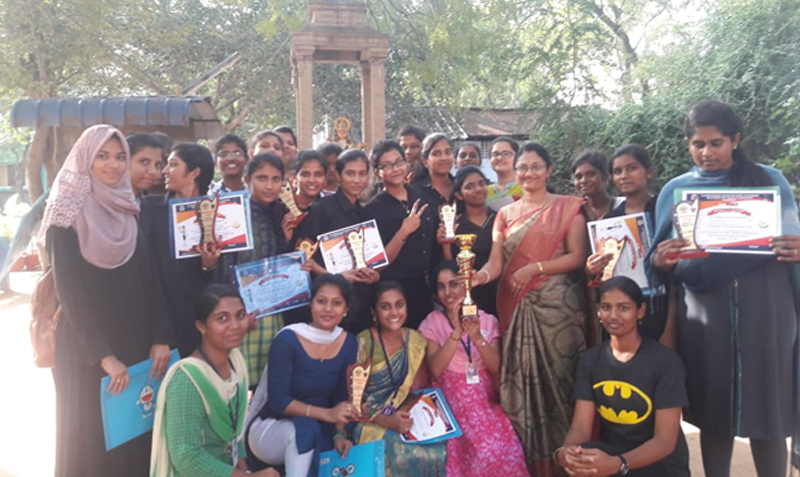
Activity : Intercollegiate Competition
Organiser : Department of Management Studies
Venue :V.V.Vanniaperumal College for Women,
Virudhunagar.
Participants : 26 Students
Date :19.12.2019
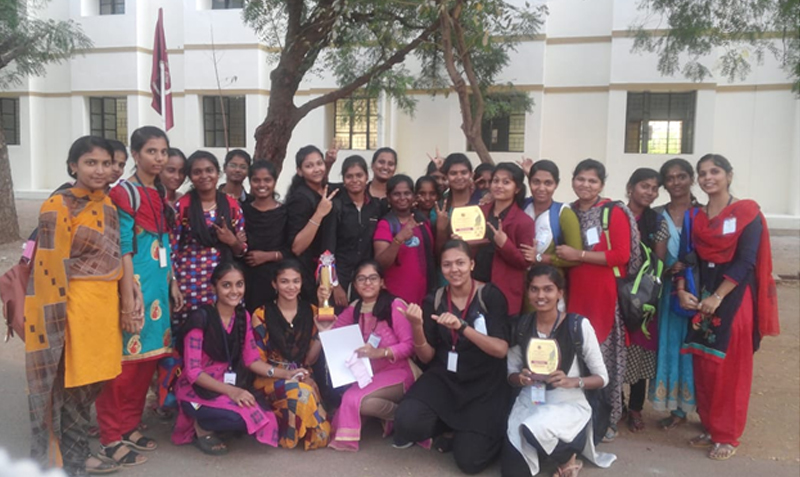
Activity : Intercollegiate Competition
Organiser : Department of Management Studies
Venue : ‘SKIMT MAGNATE – 2K20’,
Sri Kaleeswari College of Management Technology
Participants : 39 Students
Date : 25.02.2019
Contact Us
Thiruthangal Road , Sivakasi - 626123 , Tamil Nadu , India
Telephone Number
+91 4562-220389 FAX Number
+91 4562-226695 Email ID
sfrc@sfrcollege.edu.in
